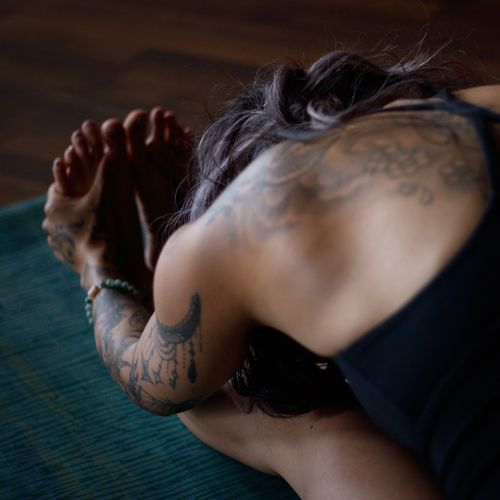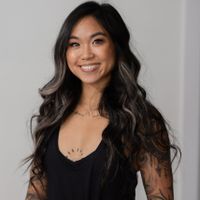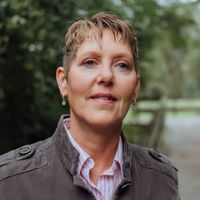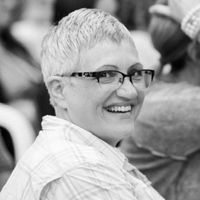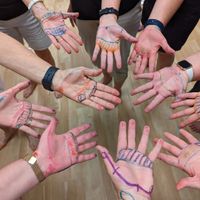Growing up, I often felt deeply unworthy and struggled with intense feelings of inadequacy. Cocaine provided temporary relief from these painful emotions, making me feel happy and energetic. Being sober was the opposite - I felt depressed and unmotivated to do anything or show up and be seen. I couldn't imagine attending any events without it because I didn't think I was acceptable just as I was. I didn't even like being with myself unless I was high.
To cope with the anxiety that came with using cocaine, I turned to alcohol, and then cannabis to ease the hangover the next day. It was a triad of substances I didn't think I'd ever want to live without. The constant drug use was impacting my memory and daily life - I had no energy, couldn't think clearly, and my emotions were volatile. I had no self-awareness or control over them. I felt stuck in a victim loop, believing that things kept "happening" to me and the only way to cope was more drugs.
I felt ashamed having to keep my drug use a secret from loved ones, and because it was a secret, I felt alone. I experienced a temporary bond with fellow users when high, but in sobriety, that connection wasn't there at all; we were like strangers. It felt like I was living a lie - the real world where I was worthless and the drug world where things could be temporarily exciting, happy, and perfect.
It took years for me to seek help because addiction isn't widely acknowledged as a genuine illness - it's often perceived as the individual's choice to continue their own suffering. I tried counseling, but it felt more like trying to think my way out of a problem. My mind was already overtaxed from anxiety and rumination. Every time I relapsed and had to make an appointment with my counselor, it brought on more shame and anxiety. It wasn't something I could do regularly or every day, and while it provided a space to talk, it wasn't geared towards change like the other healing options I found later.
I faced many rock bottom situations - my partner found out I'd hidden my drug use for nearly a year, threatening our relationship; my sister didn’t want me around her friends because of my behavior when high. I’d go on two-day benders, often arriving at work high or extremely hungover, sometimes resorting to sleeping under my desk or in my car. I frequently got kicked out of clubs for overindulgence, and mornings after were filled with anxiety, shame, and vague memories of my actions. These episodes led to losing my best friends who couldn't be around me stuck in this loop anymore. They were worried about me and also didn't know how to help. I acted selfishly because the one thing more important than anything was my next fix.
In a desperate attempt to get help, I tried calling a crisis line once, but it wasn't very useful. They directed me to find a local Narcotics Anonymous (NA) meeting, but I could never bring myself to go to one. The amount of shame and energy it required to admit I had a problem "that serious" held me back. I didn't like the idea that AA and NA were based around religion and that we had to render ourselves powerless. That message never resonated with me.
Looking for ways to lead a healthier life amidst my struggles, I turned to yoga. At first, I didn't think much of it, assuming it was merely a class for stretching. One day, the teacher asked us to repeat a certain mantra in our heads: as we inhaled, we'd say, "I love myself," and as we exhaled, we'd say, "just as I am." As soon as she finished the sentence, the tears came. I felt how excited my heart was to hear these words, finally, and just how long I'd been withholding this love from myself due to a perceived brokenness that I'd never learned how to fix without drugs.
I started to cry more in class, which always surprised me, but it felt like my body knew this was a safe place to let it out. This yoga space was so different from my job in construction, which is loud, chaotic, and aggressive. Here, the instructors encouraged us to make our own choices, offering a sense of control I didn't get at work. It was nurturing, quiet, and peaceful. For the first time, I managed to be still in a yin class, something I never thought possible. My body was so used to being on edge or releasing stress through intense gym sessions. Discovering softness was new to me; I hadn't realized how much I needed it. Initially, it was just brief moments of peace, but those moments grew with more practice. As I deepened my practice and went through teacher training, that sense of peace expanded.
Earning my life coach certificate was a game-changer. The lessons I learned in those sessions led me to make a pivotal decision - leaving my toxic job in construction. It felt like the missing piece I needed to stop feeling trapped and powerless. I realized I had the power to choose, and so I chose to move on, leaving behind all excuses. Life was too precious to spend in a situation that didn't bring me joy or fulfillment.
In March 2020, as Covid emerged and we all started social distancing, I found myself away from the usual triggers of my addiction. This period, coupled with the insights gained from regular yoga practice over the last six months, empowered me to end my 14-year relationship with cocaine. Looking back, I can also see that previous attempts at kicking the habit hadn't stuck because I didn't have another habit to replace it with. Yoga not only replaced the dopamine I used to get from cocaine, it helped me form a deeper connection with myself that made me feel brave enough to try life without it. Unlike other healing methods, it was something I could easily do every day, by myself if I wanted, or with others when I craved community. I got clean and haven't looked back. Yoga kept me sane throughout the pandemic. Having a place to go to, a community that shared a common goal of caring and cultivating peace for ourselves and those around us made all the difference.
Yoga deeply transformed my life, inspiring me to share its benefits with others. In November 2021, I pursued my teacher training and began teaching, recognizing that this step was just the beginning of my healing journey. In February 2023, I traveled to Thailand to further my teacher training, and I had my last drink the night before boarding the plane.
Since January 31, 2023, I've been sober from alcohol and cannabis. I recognized that to be the teacher and person I wanted to be, my addictions couldn't continue to hold me back. I needed my mental clarity restored. Yoga and meditation showed me that facing my emotions wasn't as scary as I thought, it was actually truly freeing and healing. The more I dared to show up authentically, the more the community and people I'd chosen to surround myself with showed me that I'm worthy of love and belonging just as I am, without needing a crutch to show up a certain way in order to be accepted.
I now provide yoga, meditation, and coaching, creating a space where individuals can find acceptance without judgment as they deal with life's challenges, whether that's addiction, changing careers, going through a divorce, facing illness, or just the everyday overwhelm. I focus on yin yoga and yoga nidra, encouraging stillness as a powerful self-healing tool.
My own battle with addiction highlighted the vital need for connection. Many of us experience feelings of isolation and being undervalued, along with a fear of not being accepted for who we truly are. This mix of emotions can lead to anxiety, resentment, and depression, often paving the way for addiction as we look for methods to escape or soothe these distressing feelings. Combining yoga, meditation, and coaching in one session has led to profound improvements in my clients, helping them connect with themselves and grow in self-trust, love, and acceptance. This journey toward self-awareness enables them to move beyond self-abandonment and set clear boundaries in their lives, deciding what they will no longer tolerate.
Yoga, meditation, and life coaching were game changers for me, teaching me to recognize I am capable of making the right choices, take back control, and move beyond seeing myself as a victim. These tools have made me passionate about simplifying and demystifying these practices for others, while incorporating coaching to turn reflections into concrete actions. My journey from addiction and seeking external validation to finding inner peace and self-worth informs my approach. True change starts with self-understanding and a clear vision of the life we want versus where we currently stand, followed by taking small, daily steps towards that goal.
Having experienced the depths of addiction and isolation, I learned that feeling calm and safe enables us to hear our inner voice and make decisions that truly serve us better. This knowledge transforms how we engage with the world, opening up endless possibilities. Through my practice, I see these transformations regularly, affirming the power of intentional change.

